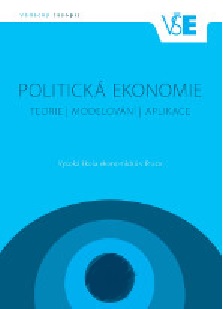Support for informal carers: has the new benefit improved their ability to care?
Support for informal carers: has the new benefit improved their ability to care?
Author(s): Vladimír Barák, Vojtěch Krebs, Helena MitwallyováSubject(s): Economy, Economic policy
Published by: Vysoká škola ekonomická v Praze
Keywords: Informal care; social policy; benefit; Czech Republic; de-institutionalisation
Summary/Abstract: The purpose of this article is to evaluate the subjective impact of provided care on the quality of life of informal carers, to assess the institution of long-term carer’s allowances from the viewpoint of informal carers, and to identify additional social policy tools that could, in carers’ opinion, improve the provision of care. Our research shows that provision of care leads to a reduced quality of life for a significant number of respondents. It is confirmed that respondents’ welfare is negatively influenced by a lack of funding and weak development of social services. It is not proven that the long-term carer’s allowance is a comprehensible benefit increasing the carers’ quality of life providing enough motivation to care. This sickness insurance benefit is intended primarily for a temporary lack of self-sufficiency, with the prospect of future improvement. Long-term or permanent lack of self-sufficiency and the related care must be secured by social support and assistance mechanisms, including respite care, and ought to be funded outside the framework of sickness insurance.
Journal: Politická ekonomie
- Issue Year: 70/2022
- Issue No: 1
- Page Range: 51-76
- Page Count: 26
- Language: English

